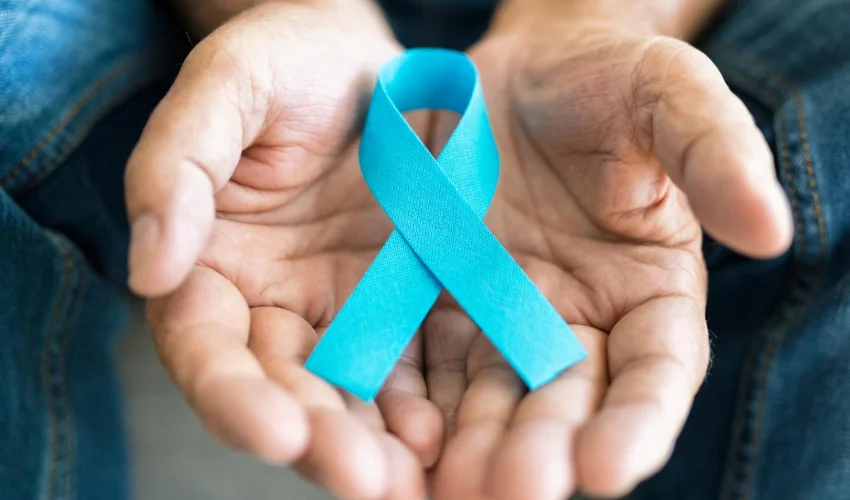Living with diabetes can be challenging, but individuals and communities have the power to make a positive impact through advocacy. Advocacy involves speaking up, raising awareness, and working towards changes that can improve the lives of people with diabetes. In this article, we will explore various advocacy opportunities within the diabetes community, providing valuable insights for diabetic patients and caregivers. By understanding these opportunities, individuals can contribute to the advancement of diabetes care, support, and research. Let’s delve into the world of diabetes advocacy and explore how each person can make a difference.
Understanding Diabetes Advocacy
Diabetes advocacy encompasses a range of activities aimed at promoting awareness, education, and policy changes to benefit those affected by diabetes. It involves addressing issues related to prevention, treatment, access to care, and societal support. By engaging in advocacy efforts, individuals can contribute to the following:
Raising Awareness
Advocacy starts with raising awareness about diabetes and its impact. By sharing information about the disease, its prevalence, risk factors, and management strategies, individuals can help dispel myths and misconceptions surrounding diabetes. Raising awareness can be done through various channels such as community events, educational campaigns, and online platforms.
Improving Care and Support
Advocacy efforts can focus on improving the quality of care and support available to individuals with diabetes. This includes advocating for better access to healthcare services, ensuring affordability of medications and supplies, and promoting the implementation of multidisciplinary care teams. By collaborating with healthcare providers and policymakers, individuals can work towards creating a supportive environment for diabetes management.
Promoting Research
Advocacy can play a crucial role in advancing diabetes research. By advocating for increased research funding, individuals can support initiatives that aim to develop new treatments, improve prevention strategies, and ultimately find a cure for diabetes. Additionally, individuals can participate in clinical trials and studies, contributing to the scientific knowledge base and shaping the future of diabetes care.
Advocacy Opportunities for Diabetic Patients and Caregivers
Joining Diabetes Associations and Organizations
Diabetic patients and caregivers can become active members of diabetes associations and organizations. These organizations provide valuable resources, support networks, and advocacy platforms. For example, the American Diabetes Association (ADA), Diabetes UK, and the International Diabetes Federation (IDF) offer educational materials, local support groups, and opportunities to participate in advocacy campaigns and events. By joining these associations, individuals can stay informed, connect with others, and amplify their advocacy efforts.
Sharing Personal Stories
Personal stories have a profound impact on raising awareness and fostering empathy. Diabetic patients and caregivers can share their experiences with diabetes through various mediums, such as blogs, social media platforms, and local support groups. By sharing the challenges they face, the triumphs they achieve, and the strategies they use for diabetes management, individuals can inspire others and help them better understand the daily realities of living with diabetes.
Advocating for Policy Changes
Policy changes can greatly influence the lives of individuals with diabetes. Advocacy in this area involves engaging with policymakers at local, national, and international levels. This can be done by contacting elected representatives, participating in public hearings, signing petitions, and sharing personal stories that highlight the need for improved access to diabetes care, affordable medications, and comprehensive insurance coverage. By collectively voicing concerns and advocating for change, individuals can influence policy decisions that positively impact the diabetes community.
Educating the Community
Education plays a vital role in diabetes advocacy. Diabetic patients and caregivers can organize community events, workshops, or informational sessions to educate the public about diabetes. Collaborating with local healthcare professionals, they can develop educational materials, provide practical advice on diabetes management, and dispel common misconceptions. By empowering the community with accurate information, individuals can foster a supportive environment and encourage early detection and prevention of diabetes.
Digital Advocacy and Online Platforms
Utilizing Social Media
Social media platforms offer a powerful means of raising awareness and connecting with a broader audience. Diabetic patients and caregivers can leverage platforms such as Facebook, Twitter, and Instagram to share educational content, personal stories, and advocacy campaigns. By using hashtags related to diabetes awareness (#DiabetesAwareness, #T1DStrong), individuals can amplify the reach of their advocacy efforts and engage with a global community.
Engaging with Online Communities
Online communities dedicated to diabetes provide valuable spaces for individuals to connect, share experiences, seek support, and exchange knowledge. Active participation in these communities allows individuals to contribute to collective advocacy. By addressing common challenges, advocating for policy changes, and sharing resources, members of these communities can work together towards improving the lives of people with diabetes.
Contributing to Diabetes Blogs and Websites
Writing informative articles or contributing to reputable diabetes blogs and websites enables individuals to share their knowledge and experiences. By providing evidence-based information, practical tips, and personal insights, individuals can empower others in the diabetes community. Diabetes-focused platforms often welcome guest contributors, and individuals can collaborate with healthcare professionals and researchers to create comprehensive and educational content.
Collaborating with Healthcare Professionals and Researchers
Participating in Clinical Trials and Studies
Diabetic patients and caregivers have the opportunity to contribute to the advancement of diabetes research by participating in clinical trials and studies. By volunteering for these initiatives, individuals not only gain access to cutting-edge care but also help shape future treatments and therapies. Participation in clinical trials can have a significant impact on the development of new interventions and contribute to the scientific understanding of diabetes.
Working with Healthcare Providers
Building strong partnerships with healthcare providers is essential for effective diabetes management and advocacy. By maintaining open communication, sharing feedback, expressing concerns, and providing suggestions, individuals can actively contribute to improving the quality of care. Collaborative decision-making ensures that the needs of the diabetes community are taken into account, and healthcare providers can be powerful allies in advocating for better access to care and support.
Advocacy presents numerous opportunities for diabetic patients and caregivers to make a meaningful impact within the diabetes community. By joining diabetes associations, sharing personal stories, advocating for policy changes, utilizing digital platforms, collaborating with healthcare professionals, and participating in research, individuals can contribute to raising awareness, improving care and support, and promoting vital research. Every effort, no matter how small, can create a ripple effect of positive change. Together, we can work towards a world where diabetes management is accessible, effective, and supportive for all.




